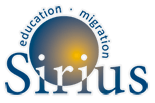CONTEXT
The Finnish National Agency for Education guides schools all around Finland on the processes of recognising or evaluating the competences or qualifications of migrants. Since municipalities are autonomous bodies, every municipality needs to be concerned in monitoring how schools operate competence recognition processes or whether school authorities follow the guidelines of the Finnish National Agency for Education. The responsibility for the competence recognition processes lies mostly on the shoulders of the classroom teachers themselves, and because many migrants have no Finnish skills, evaluating their abilities is an ongoing task. However, the first interest of teachers is to assess the students’ writing skills (whether they can write and what letter system they use) and other language or communication skills. Although a qualified interpreter is a part of this phase, there is always the possibility of misunderstanding. Therefore, this whole process usually demands many working hours from classroom teachers, whilst schools are running on a budget deficit.
The most important criteria for determining the students’ grade level and educational pathway are based on their age. The teachers also need to develop such knowledge to gain a thorough understanding of the students’ qualifications by assessing their previous achievements from documents such as certificates and diplomas. However, in many situations, immigrant students cannot provide their previous documents. Additionally, teachers must apply extra time and effort to assess their students’ academic and social skills.
This initial assessment demands every school or individual teacher do the complete evaluation of previously gained qualifications. Although the Finnish teacher education system gives adequate expertise to understand diversity among students and to work with the special needs that ethnic minorities can have, many everyday activities of school work demand the majority of the efforts and attention of both schools and teachers. The culturally sensitive perspective is always taken into consideration but its realisation depends on an individual teacher’s skills.
Therefore, the validation of non-formal education does not receive the necessary resources and attention when compared with mainstream education. All teachers have their own individual style of documenting the assessment and recognising the skills of students.
When the implementation of policies rests on the shoulders of individuals, there is a risk of misinterpreting the policies as well. However, recognising previous skills and diplomas takes time and attention, mostly for reforming policies.
In 2015, MoEC set up a steering group to coordinate different short-term and long-term measures to produce an interim report arising from the situation of growing numbers of asylum seekers and immigrants. In 2016, MoEC published their first report and the second report accordingly published in 2017 which included new reforms and measures. In 2018, minister for Education appointed a follow- up committee to monitor the progress of the previous reforms mentioned in those reports in 2016 and 2017. This national follow-up group on “immigrant education and integration” has been initiated by the MoEC 2018 for the period of April-December 2018 and the report published in spring, 2019. This follow up committee sought to assess the capacity and ability of the education system to respond to the rapidly growing number of asylum seekers and refugees and also proposed some action plans. This working group has been formed by the selected representatives of distinctive organizations from different regions who represent a range of viewpoints on this subject matter. This working group highlights some new issues that have not yet been addressed in previous reports that also published earlier. These reform proposals of the policies include questions related to teacher availability and qualifications to find out the challenges related to Finnish language skills. New measures are proposed to support both the educational and employment pathways of immigrants. These reforms indeed include consolidating policies and emphasizing local action in youth work (MOEC, 2018). The NRT contributes to these discussions.


